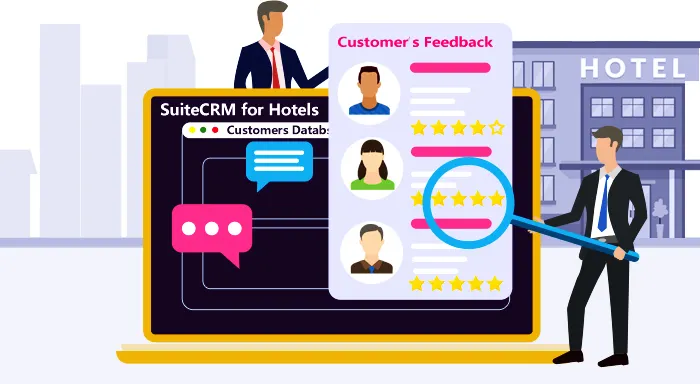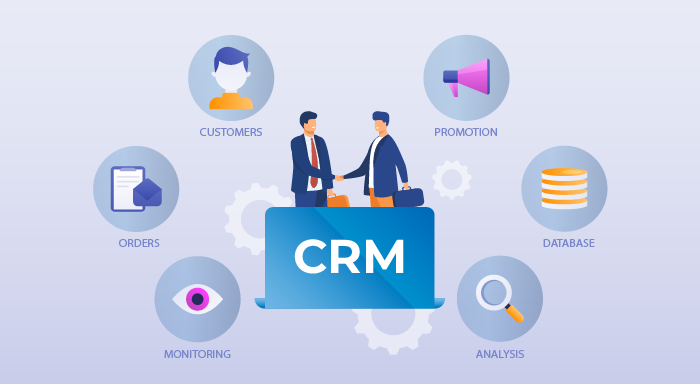In today's highly competitive world, sales teams have to work more efficiently and interact more with customers. CRM automation - in other words, the smart use of technology to streamline sales-related activities, simplify workflows, and enhance sales performance - is first on the list to tackle this problem. This blog post explains how CRM automation is transforming sales processes to help sales teams achieve their sales goals more easily.
What is CRM Automation
CRM automation refers to the process of using software tools that automate repetitive and time-consuming tasks experienced by the sales team in their everyday work. Where traditional systems with customer relationship management simply help a business monitor interactions with customers, store vital information, and manage relationships, automation adds much more work for the CRM system.
The following are activities that can be automated by a CRM:
- Data entry automatically
- Follow-up scheduling
- Sending emails at the right time
- Live tracking of customers' behaviour
- Sales reports automatically
CRM automation helps to cut the likelihood of human mistakes, saves time for the actual work, and brings an opportunity for salespeople to spend more effort on people-related activities rather than paperwork.
Advantages of CRM Automation for Sales Teams
1. Efficiency and Time Savings
One of the most apparent benefits that CRM automation provides for sales teams is a saving in time. Thousands of hours are wasted manually entering data, organizing it, and sending follow-up emails to leads. Automation tools help minimize all such time-consuming manual activities by reading data, sorting leads, and even scheduling an interaction without you ever needing to.
For instance, a CRM can automatically log customer contact, update profiles of customers, and monitor behavior on websites or emails without requiring sales representatives to log information manually. This time-saving efficiency translates into extra hours, which sales professionals can use to close more deals.
2. Effective Lead Management
Lead management becomes more complicated, particularly with teams of salespeople working on several leads at every stage of the sales funnel. CRM Automation can manage leads much more effectively than a human manager by classifying leads into groups based on interest levels, engagement, or potential for conversion.
For instance, lead scores could automatically come from most CRM systems as the predetermined criterion used in defining these characteristics of "how many times someone came to the website, opened an e-mail link or even interacted with a social media platform." These help sales teams prioritize efforts and reach out to leads that have the best possible likelihood of converting.
3. Automated Follow-Ups and Email Campaign
Automated follow-up has really transformed sales teams. As indicated by studies, leads tend to close faster if followed up consistently; however, the sales professional generally lags behind in timing and content with which he reaches out to the prospects. HubSpot marketing automation allows the CRM platform to be programmed to launch personalized follow-up emails upon customer actions, such as when a prospect downloads an eBook or requests a product demo.
Email automation features within the CRM tool automatically create drip campaigns. That runs as a series of timed emails, automatically continuing to nurture leads without having to intervene manually. And while that alone will keep people engaged, it also saves time for the sales team.
4. Further Customer Profiling
An effective sales team needs current and accurate information to make wise decisions regarding their customers. Implementing automation for CRM support will give in-depth analytics which can be used to trace customers' preferences, pain points, and behavior at every stage in their buying journey. This further enables the sales person to know how far the prospect in question has gone in the sales cycle and what should be done to push the prospect further forward to making a final buying decision.
With some such insights as the most visited pages on your website, how often particular contents have been downloaded, and how much time has been spent on various product pages, salesmen can pitch directly to address certain needs of customers, thus hopefully increasing their chances of closing a deal.
5. Streamlined Sales Workflows
Lead assignment, scheduling of follow-ups, and tracking of pipelines, among many other tasks, can be automated, thus opening up possibilities for a much more streamlined sales workflow for the sales teams. No lead will then fall between the cracks, and all the steps involved in the sales process will be handled systematically.
For instance, one kind of CRM system automatically routes leads to sales representatives with whom they are assigned in accordance with rules defined by location, industry, or product interest so that he or she will not be confused as to who is responsible for which leads, nor that all leads are contacted in a timely manner.
6. Accurate Sales Forecasting
CRM automation tools offer sales teams real-time sales forecasting, where historical data can be analyzed, and combined with what is going on today in the pipeline in order to generate accurate forecasts of sales. They automatically produce reports concerning which deals are most likely to close, the revenue expected, and when this is expected.
This level of accuracy in forecasting allows a company to use its resources better, so it can make changes within the sales force that ensure meeting revenue requirements.
7. Mobile CRM on-the-go Sales
Using the mobile CRM application, a sales team can be provided with proper access to customer information in their profiles, update those profiles, and monitor and create tasks at any given time. These applications give instant access to the most crucial features of a CRM, enabling the sales professional to be extremely productive while on the go.
By integrating mobile CRM with automation, sales teams will never miss an opportunity to respond to a lead or customer since they can easily access their CRM system directly from their mobile phones to view reminders, schedule an appointment, or do a follow-up of something.
Key CRM Automation Technologies in 2024
There are many CRM automation technologies that have come up and shaped the sales force today. These include:
1. AI-Powered CRM Systems
Artificial Intelligence is being integrated into various CRM platforms to offer advanced predictive analytics and even make recommendations. With AI, CRM systems have been able to analyze data regarding customer features and classify the same, sometimes even outlining patterns of customer behaviour and even providing recommendations on the most suitable actions for sales teams to take. Other routine tasks, such as entries and communication with the customers, can be handled by the platform, thus reducing the amount of effort placed on human labour.
2. Chatbots and Virtual Assistants
CRM automation now includes the application of chatbots and virtual assistants for the general communication process with prospects and customers through websites or messaging applications. Through AI, such assistants are able to respond to basic questions from customers, collect contact information, and set follow-up appointments with sales consultants in ways that lead is engaged as soon as possible.
3. Workflow Automation Tools
Many of the current CRM systems have workflow automation, which is now more advanced than ever and can automate a wide range of complex activities, such as generating contracts, proposal build-out, and deal tracking. Such tools may be attached to particular triggering criteria in order to automatically make certain actions occur in sequence without human intervention to ensure a smooth flow of activities.
4. Integration With Other Business Application Tools
The CRM solution is nowadays being widely used in a lot of other business tools, such as marketing platforms, accounting software, and customer service applications. Integration enables sales teams to have a 360-degree view of the customer for better interaction management. Companies often collaborate with expert providers like Aseva technology consultants to ensure seamless integration of CRM systems with their broader tech stack, enabling smooth data flow and improved efficiency across departments.
Challenges and Issues with CRM Automation
With the benefits of CRM automation come also the challenges one should be aware of:
- Accuracy of Data: Automation is only as good as the data. The sales team should ensure their CRM is updated with accurate and relevant information.
- Customization: No company is ever alike. CRM automation tools need to be tweaked to accommodate the specific sales processes and workflows.
- Training and Adoption: In any effective CRM automation, sales teams must be educated adequately for the use of the system. The companies must also adopt driving user adoption to ensure full utilization.
Conclusion
CRM automation is changing the face of the entire sales landscape completely by making it easier for sales teams to manage leads and customer engagement while pushing through deals to closure. Automation of repetitive processes, therefore, generates valuable customer insights and streamlines process workflows. CRM systems give sales teams the ability to focus on what they do best–maintaining solid relationships and driving revenue growth. With CRM technology built on AI, chatbots, and advanced analytics, possibilities for improving sales processes only extend to the limits of imagination.
Automating your CRM not only makes the sales process much more efficient but also opens doors for building smarter data-driven sales strategies to deliver sustained growth and success.








